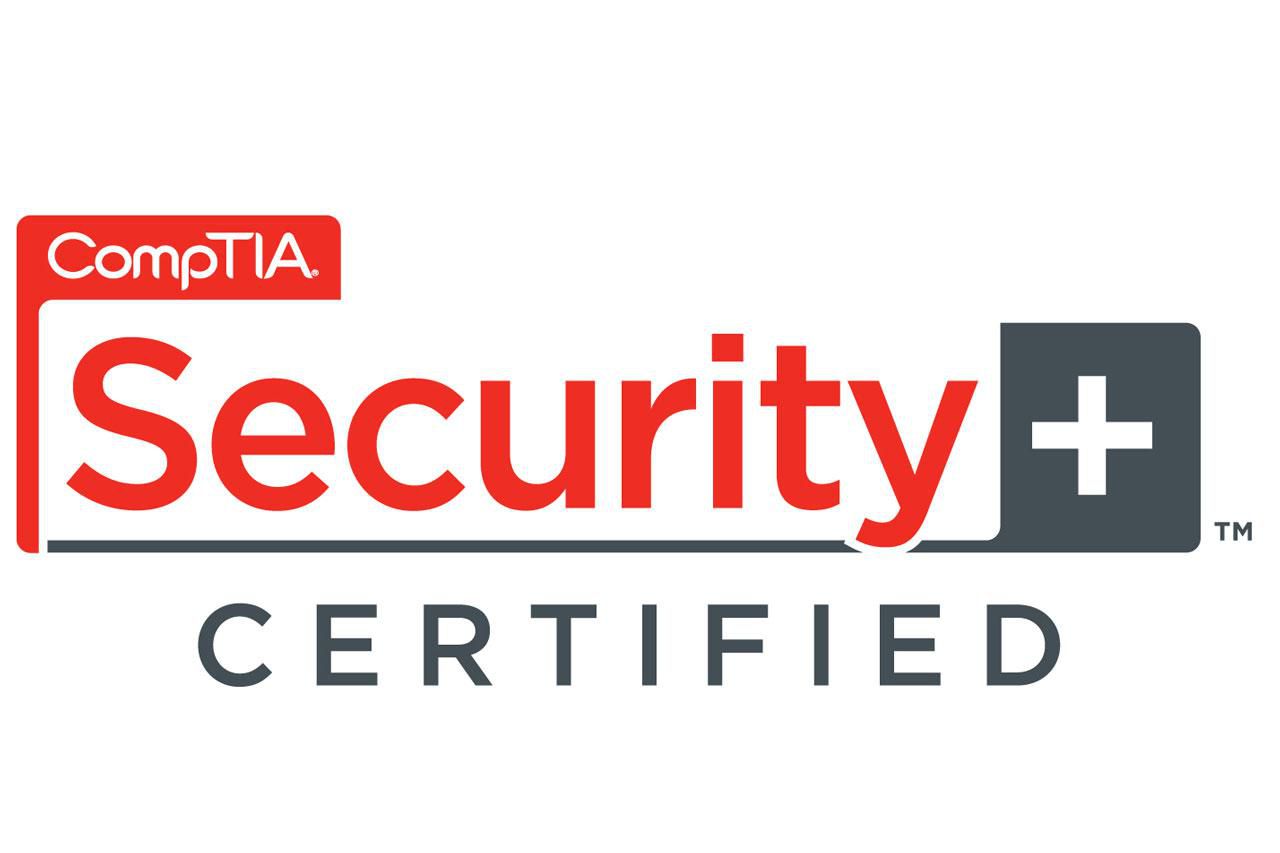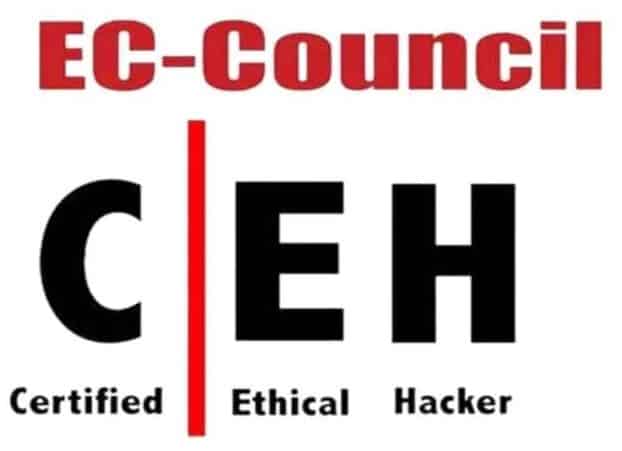Are you passionate about cybersecurity and interested in a career that combines problem-solving, technical skills, and a dedication to keeping digital infrastructure secure? If so, becoming a Penetration Tester may be the perfect path for you. As a Penetration Tester, also known as a pen tester, you will play a vital role in assessing and testing the security of networks, web applications, and other digital systems. Your job will involve using ethical hacking techniques to simulate cyberattacks and identify vulnerabilities before malicious hackers can exploit them. This exciting career requires a unique mix of technical expertise, creativity, attention to detail, and a strong understanding of cybersecurity principles.
To succeed as a Penetration Tester, you’ll need to have a strong foundation in network security, vulnerability assessment, and web application security. You’ll also need to be proficient in using pen testing tools and technologies, such as Kali Linux, NMap, and Burp Suite. Additionally, having certifications like Certified Ethical Hacker (CEH) or Offensive Security Certified Professional (OSCP) can greatly enhance your credibility and job prospects in the field.
If you’re considering a career as a Penetration Tester, this article will provide you with key skills and tips to help you succeed in 2024 and beyond. Whether you’re just starting or looking to advance in your cybersecurity career, we’ll cover everything from the necessary steps to become a Penetration Tester to the skills required for the job and the job opportunities and salary outlook for this in-demand profession.
Key Takeaways:
- Penetration Testers assess and test the security of networks, web applications, and other digital infrastructure.
- They use ethical hacking techniques to identify vulnerabilities and weaknesses before malicious hackers can exploit them.
- Key skills for Penetration Testers include technical expertise, problem-solving abilities, creativity, and a strong knowledge of cybersecurity principles.
- Steps to becoming a Penetration Tester include self-analysis, education in cybersecurity, obtaining relevant certifications, and continuously staying updated on the latest trends.
- Penetration Testers require a range of technical skills, including proficiency in programming languages, knowledge of network protocols and operating systems, and familiarity with pen testing and application security tools.
What Does a Penetration Tester Do?
Penetration testers, also known as ethical hackers, play a crucial role in cybersecurity. They conduct security assessments by simulating cyberattacks on networks, web applications, and various digital infrastructures. Their objective is to identify vulnerabilities and weaknesses before malicious hackers can exploit them. By using a combination of tools and methods, both commercial and self-developed, penetration testers aim to uncover gaps in security systems and provide insights into potential vulnerabilities.
Penetration testers not only focus on network and application security but also assess the security of people and business processes. By testing the effectiveness of security measures, they offer valuable recommendations to enhance overall information security. Their work involves analyzing the security controls implemented within organizations and finding potential weaknesses that could compromise data integrity, confidentiality, and availability.
“The job of a penetration tester goes beyond conducting security assessments. It is about thinking like a hacker, understanding their tactics, and staying proactive in safeguarding digital assets.”
Penetration testers utilize ethical hacking techniques to mimic real-world cyberattacks, allowing organizations to identify and resolve vulnerabilities proactively. They employ various approaches, such as network mapping, vulnerability scanning, social engineering, and application testing, to comprehensively assess the security posture of an organization.
By employing their expertise and deep understanding of networks, applications, and business processes, penetration testers provide valuable insights that help organizations fortify their defenses against the ever-evolving cyber threats landscape.
Steps to Become a Penetration Tester
Are you interested in a career as a Penetration Tester? Here are some steps you can take to start your journey in this exciting field.
1. Perform Self-Analysis
Before embarking on the path of a Penetration Tester, it’s important to assess if you have the necessary skills and qualities for the role. This includes strong problem-solving abilities, attention to detail, and a genuine passion for staying current with the latest advancements in cybersecurity.
2. Pursue Education in Cybersecurity
Obtaining education in cybersecurity can provide a solid foundation for your career. Consider enrolling in a degree program or specialized training courses to gain in-depth knowledge of the field. Starting your career in related roles such as security administration, network administration, network engineering, system administration, or application programming can also help you build a strong foundation in security principles. Head to our Education section and find out which certification is the best for you.
3. Get Certified
Professional certifications are highly valued in the domain of penetration testing. Certifications such as Certified Ethical Hacker (CEH) or Offensive Security Certified Professional (OSCP) can validate your skills and expertise in the field. Acquiring these certifications demonstrates your commitment to honing your craft and staying updated with the latest industry standards.
4. Hone Your Skills
Becoming a skilled Penetration Tester requires constant practice and practical experience. Actively participating in bug bounty programs, where you find and report security flaws for cash rewards, can help you develop your skills. Collecting open-source intelligence (OSINT) and developing proprietary attack programs can further enhance your expertise in ethical hacking.
5. Stay Current
Staying current with the latest trends and advancements is crucial in the fast-paced world of cybersecurity. Keep up with programming languages, network security techniques, hacking methodologies, and security protocols. Continuous learning and staying updated will help you stay ahead in the field.
“Becoming a skilled Penetration Tester requires continuous learning and a commitment to staying current with the latest trends in cybersecurity.”
Skills Required for Penetration Testers
Penetration testers play a vital role in identifying and assessing vulnerabilities in digital systems. To excel in this field, individuals need to possess a range of technical skills and knowledge. Here are the key skills required for penetration testers:
- Programming Languages: Penetration testers should be well-versed in programming languages such as Python, Powershell, Golang, and Bash. Proficiency in these languages enables them to create and execute scripts for testing purposes.
- Network Protocols: Understanding various network protocols is essential for penetration testers. They should be familiar with protocols like TCP/IP, DNS, HTTP, HTTPS, SMTP, and FTP to effectively analyze and exploit network vulnerabilities.
- Operating Systems: Penetration testers must have a solid grasp of different operating systems (OS) such as Windows, Linux, and macOS. This knowledge helps them identify security weaknesses and tailor their attacks accordingly.
- Security Tools: Proficiency in using security tools is crucial for penetration testers. They should have hands-on experience with tools like Aircrack-ng, Kali Linux, Metasploit, Burp Suite, Wireshark, Nessus, and Qualys. These tools aid in vulnerability scanning, network sniffing, exploit development, and more.
In addition to these core skills, penetration testers should also stay up-to-date with the latest trends and developments in the cybersecurity field. Skills in container security, comprehensive software security, threat hunting, SaaS application security, and anomaly detection are projected to be in high demand. Continual learning and self-improvement are key to maintaining a successful career as a penetration tester.
Why Programming Languages Matter
Proficiency in programming languages is essential for penetration testers. These languages empower them to create custom scripts, automate repetitive tasks, and develop exploits to test system vulnerabilities. Being skilled in programming enables penetration testers to adapt to different scenarios and efficiently assess the security of various software and infrastructures.
“Programming languages provide the foundation for a penetration tester’s toolkit. They allow us to build custom tools and tailor our exploits to suit specific systems and applications.”
Education and Certifications for Penetration Testers
While formal education is not always a requirement for penetration testers, having a degree in cybersecurity or a related field can provide a strong foundation of knowledge and skills. Many employers now prefer candidates with degrees in information security or computer science.
Additionally, earning professional certifications can help validate your skills and demonstrate expertise in the field. Certifications such as Certified Ethical Hacker (CEH), CompTIA PenTest+, Practical Junior Penetration Tester (PJPT), and GIAC Penetration Tester (GPEN) are widely recognized and sought after by employers in the industry. These certifications require passing an exam and often involve continuing education to stay current with the latest information and skills.
Why Pursue a Degree?
While formal education is not always a strict requirement for a career in penetration testing, obtaining a degree in cybersecurity or a related field can offer several benefits. Here are some reasons why pursuing a degree can be advantageous:
- Comprehensive Knowledge: A degree program provides a structured curriculum that covers a wide range of cybersecurity topics, including network security, vulnerability assessment, digital forensics, and ethical hacking. This comprehensive knowledge base can greatly enhance your understanding of the field.
- Credibility: A degree from an accredited institution adds credibility to your qualifications and can make you more attractive to potential employers. It demonstrates your commitment to acquiring in-depth knowledge and skills in the cybersecurity domain.
- Networking Opportunities: Studying in a degree program allows you to connect with like-minded peers, instructors, and industry professionals. Networking can open doors to internships, job opportunities, and valuable connections within the cybersecurity community.
The Value of Certifications
Certifications play a crucial role in the penetration testing field. They validate your skills, demonstrate your proficiency with specific technologies and methodologies, and enhance your career prospects. Here are some key certifications that can boost your credentials as a penetration tester:
“Certified Ethical Hacker (CEH) is a widely recognized certification that covers the tools and techniques used by penetration testers to assess and exploit vulnerabilities. This certification validates your knowledge in ethical hacking methodologies and enhances your understanding of various attack vectors.”
“CompTIA PenTest+ is an intermediate-level certification that focuses on the hands-on skills required to identify, exploit, and manage vulnerabilities on a network. It covers concepts such as penetration testing methodology, planning, and reporting.”
“GIAC Penetration Tester (GPEN) certification is an advanced-level certification that validates your ability to assess target systems, exploit vulnerabilities, and analyze the results. This certification demonstrates your expertise in the field and showcases your ability to conduct thorough penetration testing engagements.”
Continuing Education and Staying Current
As the field of cybersecurity rapidly evolves, it is essential for penetration testers to stay updated with the latest techniques, technologies, and vulnerabilities. Continuing education is crucial in maintaining your skills and expertise. Here are some ways to stay current:
- Attend industry conferences, workshops, and webinars to learn from experts and stay informed about emerging trends and best practices.
- Join professional organizations and online communities to connect with other penetration testers and share knowledge and experiences.
- Engage in self-study and research to explore new tools, techniques, and methodologies relevant to penetration testing.
- Participate in capture-the-flag (CTF) competitions, bug bounty programs, and simulated environments to practice and refine your skills.
By continuously expanding your knowledge and staying current with advancements in cybersecurity, you can position yourself as a highly skilled and sought-after penetration tester in the industry.
Gaining Experience as a Penetration Tester
Gaining practical experience is crucial for becoming a successful penetration tester. To start, consider applying for entry-level roles in the IT or cybersecurity field, such as network or systems administrator or information security analyst. These positions provide valuable hands-on experience and insights into the industry.
Furthermore, participating in bug bounty programs can be an effective way to gain experience. Bug bounty programs allow you to find and report security flaws or bugs in code for cash rewards. This hands-on testing enables you to sharpen your skills and learn from real-world scenarios.
Another method to develop and refine your skills is by practicing in simulated environments specifically designed for penetration testing. These simulation environments replicate various systems and scenarios, allowing you to conduct hands-on testing in a safe and controlled setting. It is an excellent way to build experience and confidence before engaging in real-world assessments.
Experimenting with different penetration testing tools is also essential for gaining experience. By utilizing various tools and techniques, you can expand your knowledge and problem-solving abilities. Additionally, actively participating in cybersecurity communities and networking with other professionals in the industry can provide valuable learning opportunities and potential mentorship.
“Practical experience is the key to becoming a proficient penetration tester. By starting in entry-level roles, participating in bug bounty programs, practicing in simulation environments, and connecting with the cybersecurity community, you can gain the necessary skills and insights to excel in this field.”
| Ways to Gain Experience as a Penetration Tester |
|---|
| 1. Pursue entry-level IT or cybersecurity roles |
| 2. Participate in bug bounty programs |
| 3. Practice in simulated environments |
| 4. Experiment with penetration testing tools |
| 5. Engage with cybersecurity communities |
Job Opportunities and Salary for Penetration Testers
As organizations increasingly recognize the importance of securing their networks, web applications, and digital infrastructure, job opportunities for penetration testers are on the rise. The field of cybersecurity and information security analysts, including penetration testers, is projected to experience a significant 32% job growth between 2022 and 2032, according to the US Bureau of Labor Statistics.
The average annual salary for penetration testers is approximately $101,000, with variations based on factors such as location, experience, education, and certifications. Industries such as financial services and military contracting tend to offer higher salaries for penetration testing positions.
In this rapidly expanding field, qualified penetration testers have a wide range of career opportunities in both the public and private sectors. From working with government agencies to securing the networks of Fortune 500 companies, the demand for skilled professionals in this field is growing.
To take advantage of the job opportunities and salary outlook in penetration testing, individuals must possess the necessary technical skills, certifications, and practical experience. Staying up-to-date with the latest trends and advancements in cybersecurity is also essential to remain competitive in this field.
Salaries for Penetration Testers by Industry
| Industry | Average Annual Salary |
|---|---|
| Financial Services | $110,000 |
| Military Contracting | $105,000 |
| Technology | $100,000 |
| Healthcare | $95,000 |
| Government | $90,000 |
Source: Data compiled from industry salary surveys and job market analysis.
If you have a passion for cybersecurity and possess the necessary skills and qualifications, a career as a penetration tester can provide you with rewarding job opportunities and a competitive salary. With the increasing demand for skilled professionals in this field, now is the perfect time to embark on a career as a penetration tester.
Tools and Technologies for Penetration Testers
Penetration testers rely on a variety of tools and technologies to perform their work effectively. These tools enable them to identify vulnerabilities, analyze network traffic, reverse engineer malware, and assess the security of applications and systems. Here are some of the popular tools used by penetration testers:
Kali Linux
Kali Linux is an operating system specifically designed for penetration testing. It provides a wide range of tools and resources that help testers conduct comprehensive assessments of networks, applications, and systems.
Nmap
Nmap is a powerful tool for network discovery and port scanning. It allows penetration testers to identify open ports, services, and potential entry points in target systems.
Wireshark
Wireshark is a packet sniffing and traffic analysis tool. It enables testers to capture and analyze network traffic, helping them identify potential security vulnerabilities and threats.
John the Ripper
John the Ripper is a tool used for password cracking and authentication testing. It helps penetration testers assess the strength of passwords in target systems and identify weak credentials.
Burp Suite
Burp Suite is an application security testing tool widely used by penetration testers. It allows testers to intercept, analyze, and modify web application traffic, helping them identify vulnerabilities and weaknesses.
Nessus
Nessus is a comprehensive vulnerability assessment tool that helps penetration testers identify and prioritize security weaknesses in target systems. It provides detailed reports and remediation recommendations.
OWASP ZAP Proxy
OWASP ZAP Proxy is a web application security scanner that helps penetration testers identify vulnerabilities in web applications. It allows testers to actively scan and test web applications for common security flaws.
These tools, along with many others, form an essential toolkit for penetration testers. By leveraging these tools effectively, testers can gain valuable insights into the security posture of target systems and help organizations strengthen their defenses against cyber threats.
Conclusion
Becoming a Penetration Tester is an exciting and rewarding career path in the field of cybersecurity. By combining technical skills, creativity, and a dedication to continuous learning, you can establish yourself as a skilled professional in the industry. Starting with a strong educational foundation or specialized training, you can gain the necessary knowledge and expertise to excel in this field.
Practical experience plays a crucial role in becoming a successful Penetration Tester. Engaging in hands-on testing, participating in bug bounty programs, and leveraging simulation environments can help you sharpen your skills and stay current with the latest trends and techniques. Additionally, obtaining relevant certifications, such as Certified Ethical Hacker (CEH) or CompTIA PenTest+, can further validate your expertise and enhance your job prospects.
The demand for Penetration Testers is continuously growing, driven by the increasing importance of network security and the need to protect digital infrastructure. Job opportunities in this field are abundant, and the salary prospects are promising. By staying up-to-date with the latest tools and technologies, continuously expanding your skillset, and actively engaging in the cybersecurity community, you can thrive as a Penetration Tester and contribute to securing the digital world.
FAQ
What is a penetration tester?
A penetration tester, also known as a pen tester, is a cybersecurity professional who assesses and tests the security of networks, web applications, and other digital infrastructure. They use ethical hacking techniques to simulate cyberattacks in order to identify vulnerabilities and weaknesses before malicious hackers can exploit them.
What does a penetration tester do?
Penetration testers perform security assessments by simulating cyberattacks on networks, web applications, and other digital infrastructure. They use various tools and methods to identify weaknesses and vulnerabilities, aiming to find gaps in security systems and uncover potential vulnerabilities before malicious hackers can exploit them.
How can I become a penetration tester?
To become a penetration tester, you can start by performing a self-analysis to determine if you have the necessary problem-solving skills and attention to detail. Pursue education in cybersecurity through a degree program or specialized training courses. Consider starting your career in roles such as security administration, network administration, or system administration to gain a strong foundation. Obtain professional certifications in penetration testing and continuously develop your skills through bug bounty programs and staying up to date with the latest trends.
What skills are required for penetration testers?
Penetration testers require a range of technical skills, including proficiency in programming languages such as Python, Powershell, Golang, and Bash. They should also have knowledge of network protocols, operating systems, firewalls, encryption, and mobile operating systems. Familiarity with penetration testing and application security tools such as Kali Linux, Metasploit, and Wireshark is highly beneficial. Additionally, skills in container security, software security, threat hunting, and anomaly detection are projected to be in high demand.
Are there any education or certification requirements for penetration testers?
While formal education is not always required, having a degree in cybersecurity or a related field can provide a strong foundation. Many employers prefer candidates with degrees in information security or computer science. Professional certifications such as Certified Ethical Hacker (CEH), CompTIA PenTest+, and GIAC Penetration Tester (GPEN) can help validate your skills and demonstrate expertise in the field.
How can I gain experience as a penetration tester?
Gaining practical experience is crucial for becoming a successful penetration tester. You can start by working in entry-level IT or cybersecurity roles such as network or systems administrator. Participating in bug bounty programs, practicing in simulated environments, and experimenting with penetration testing tools can also help develop your skills. Networking with other professionals in the industry and staying active in cybersecurity communities can provide additional opportunities to learn and gain experience.











